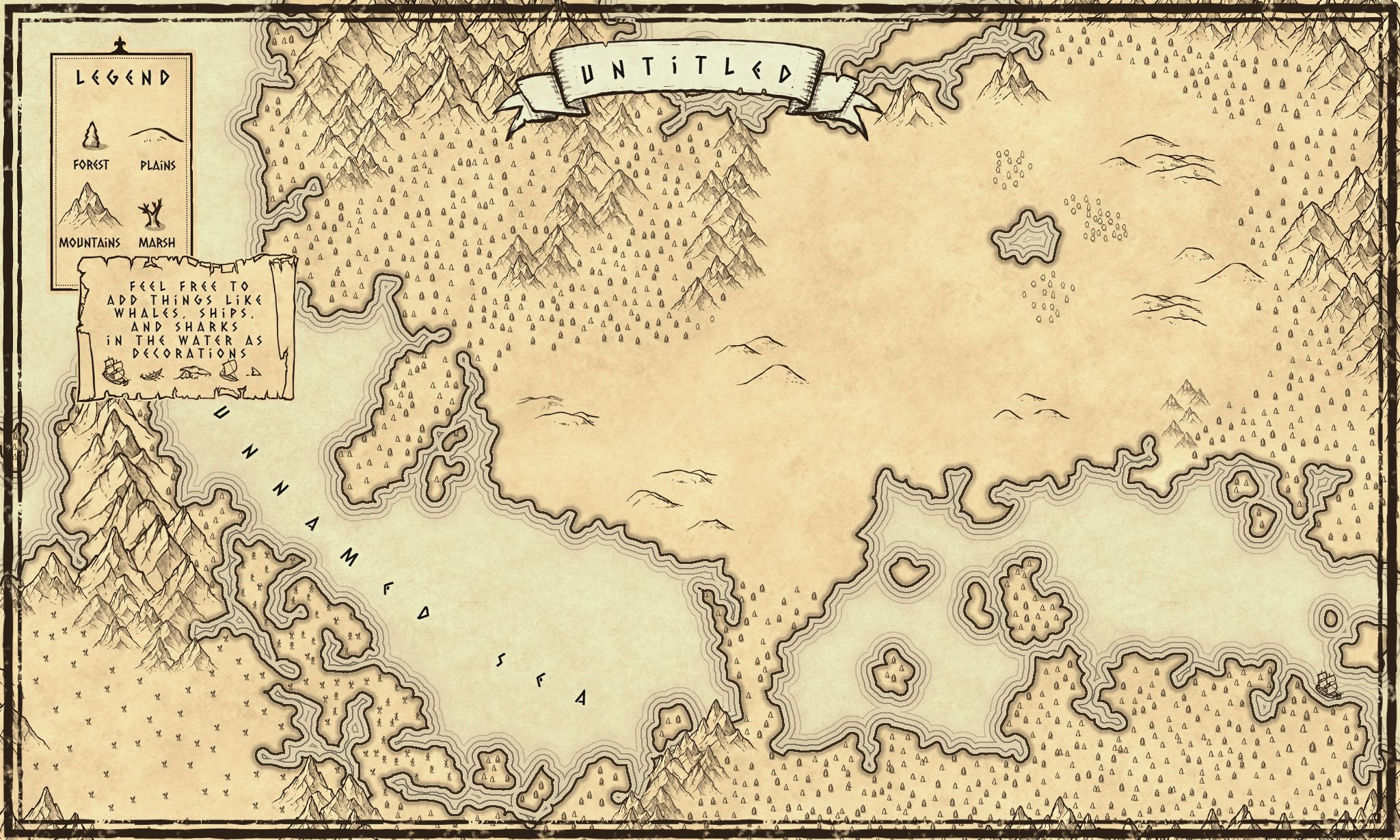Craft Epic Worlds: Your Guide to Fantasy Map Making
Ever dreamt of crafting worlds brimming with towering mountains, sprawling forests, and bustling cities? Building a fantasy map is the first step. It's more than just lines on paper; it's the foundation of your world, a visual representation of its history, cultures, and potential adventures.
Creating a fantasy map can seem daunting, but with the right approach, it's a rewarding process. This guide will equip you with the knowledge and techniques to design your own unique world, from sketching initial landmasses to adding intricate details like rivers, roads, and settlements. Whether you're a writer, game designer, or simply a creative enthusiast, this guide will help you bring your imagined world to life.
The history of fantasy mapmaking is deeply intertwined with storytelling itself. Ancient cartographers charted not just the physical world but also mythical lands and legendary creatures. From the maps in Tolkien's The Lord of the Rings to the detailed charts of the Forgotten Realms, fantasy maps have always played a crucial role in immersing readers and players in fictional worlds.
A key challenge in fantasy map creation is balancing realism with creativity. While you want your map to feel believable, it's essential to remember that it's a fantasy world. Don't be afraid to break the rules of geography and introduce unique elements that make your world stand out. The main issues often revolve around scale, consistency, and ensuring the map supports the narrative or gameplay.
Understanding the basics of cartography is helpful but not essential. Focus on creating landmasses with logical geological formations. Mountains usually form in ranges, rivers flow from higher elevations to the sea, and climates vary based on latitude and proximity to water. Simple sketches can evolve into detailed maps with practice and the right tools.
Creating your own map has several advantages. Firstly, it allows for deep world-building. Designing the geography informs the cultures, history, and even the flora and fauna of your world. Secondly, a map adds visual appeal to your story or game, enriching the experience for your audience. Finally, the process of mapmaking itself can spark creativity and inspire new narrative possibilities.
Start by sketching the basic outlines of your continents or islands. Consider the overall shape and size of your world. Then, add mountain ranges, rivers, and coastlines. Gradually introduce details like forests, deserts, and settlements. Experiment with different styles and techniques to find what works best for you.
Recommended Software: Inkarnate, Wonderdraft, Campaign Cartographer 3+
Advantages and Disadvantages of Making a Fantasy Map
| Advantages | Disadvantages |
|---|---|
| Deep Worldbuilding | Time-Consuming |
| Visual Appeal | Requires Practice |
| Creative Inspiration | Potential for Inconsistency |
Best Practices: 1. Start with a rough sketch. 2. Consider geology and climate. 3. Use a consistent scale. 4. Add details gradually. 5. Experiment with different styles.
Real Examples: 1. Middle-earth (Tolkien), 2. Westeros (George R.R. Martin), 3. The Forgotten Realms (D&D), 4. Roshar (Brandon Sanderson), 5. Tamriel (The Elder Scrolls).
Challenges and Solutions: 1. Scale: Use a grid or software to maintain consistent scale. 2. Blank Page Syndrome: Start with simple shapes and gradually add details. 3. Lack of Inspiration: Look at real-world maps and other fantasy maps for inspiration. 4. Inconsistent Style: Choose a style and stick to it. 5. Over Detailing: Focus on the most important features.
FAQ: 1. What tools do I need? (Pen, paper, or software) 2. How do I start? (Sketch the basic outlines) 3. How do I create realistic mountains? (Consider geology) 4. How do I name locations? (Be creative and consistent) 5. How big should my map be? (Depends on the scope of your world) 6. What about political boundaries? (Add them as needed) 7. How detailed should my map be? (As detailed as you want) 8. Can I use a generator? (Yes, but consider customizing it.)
Tips and Tricks: Use different line weights for different features. Add symbols for important locations. Experiment with color and shading.
Creating a fantasy map is a journey of discovery. It’s a chance to build worlds, breathe life into them, and share them with others. From the initial sketch to the final details, the process is both challenging and immensely rewarding. Whether you’re a seasoned world-builder or just starting, remember that the most important thing is to have fun and let your imagination run wild. Your map is the foundation of your world, a testament to your creativity and a gateway to endless possibilities. Embrace the challenge, explore new techniques, and never stop refining your craft. So grab your tools, let your imagination soar, and start building the world you’ve always dreamed of. Your epic adventure awaits!
Sunset funeral home illinois
Espn pick em league domination your gridiron prophecy awaits
Unlocking towing secrets your guide to truck tow capacity by vin













